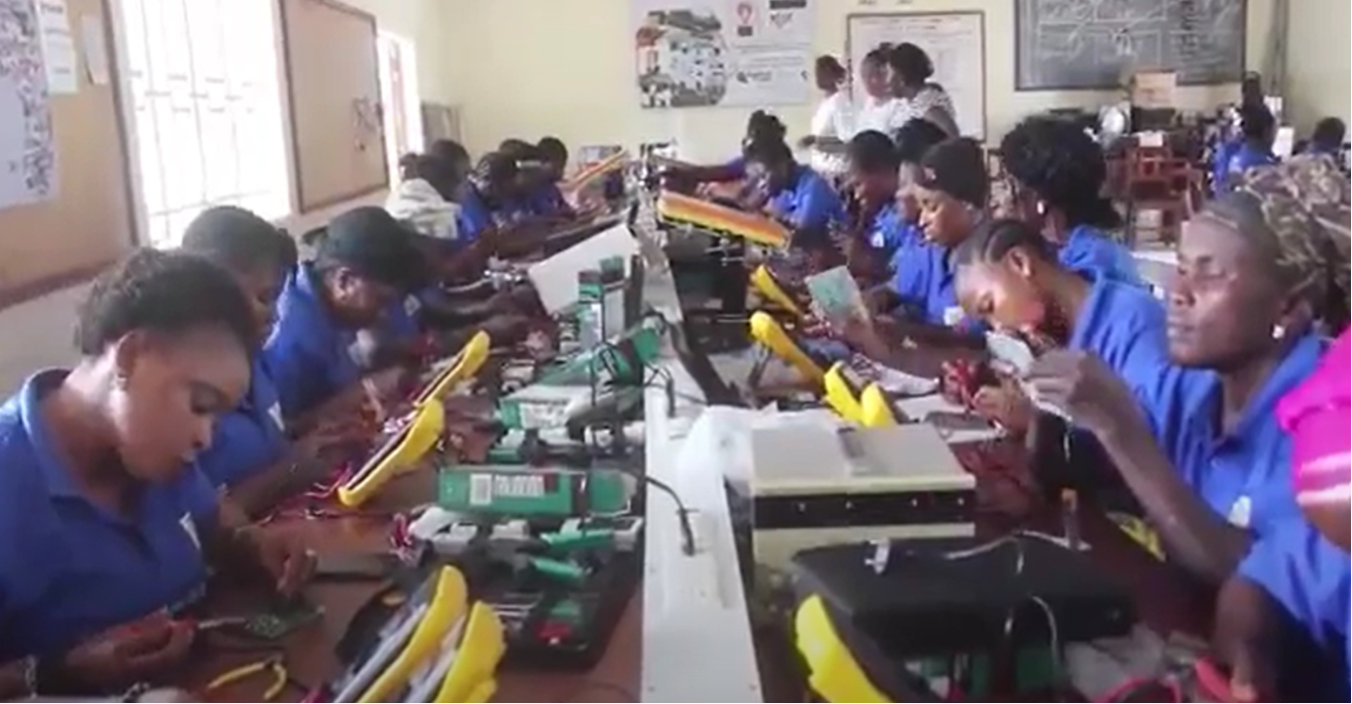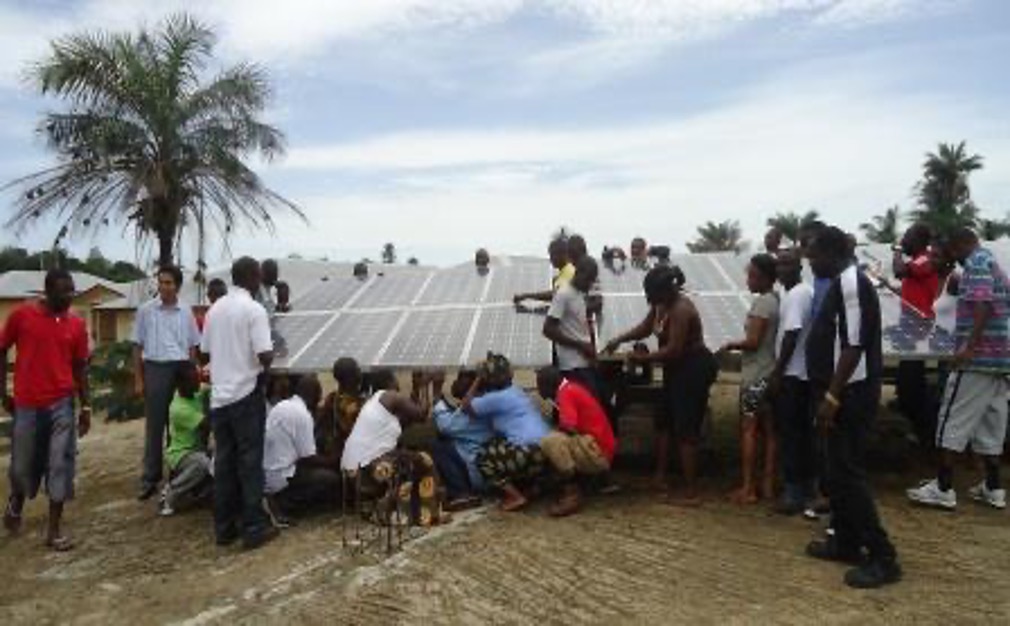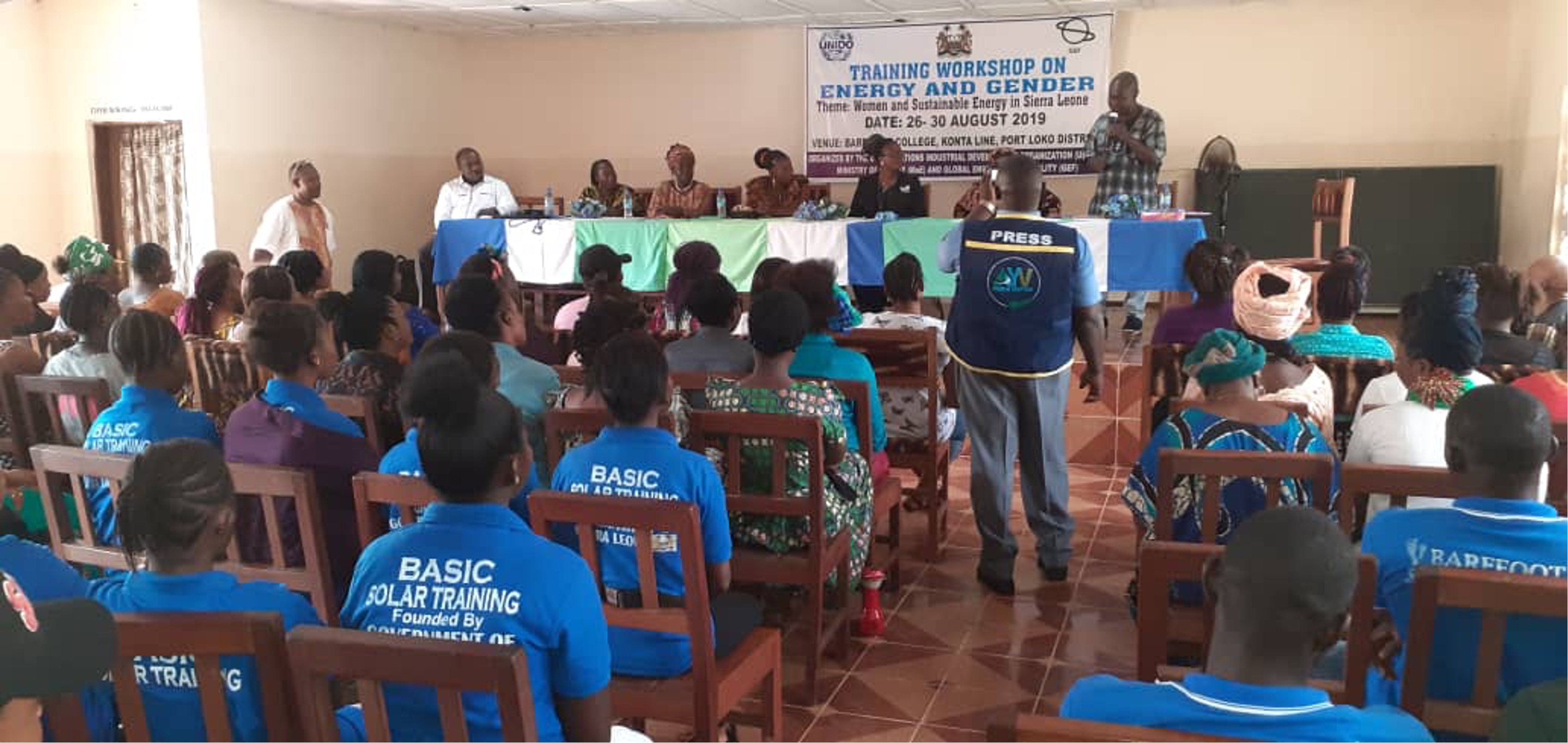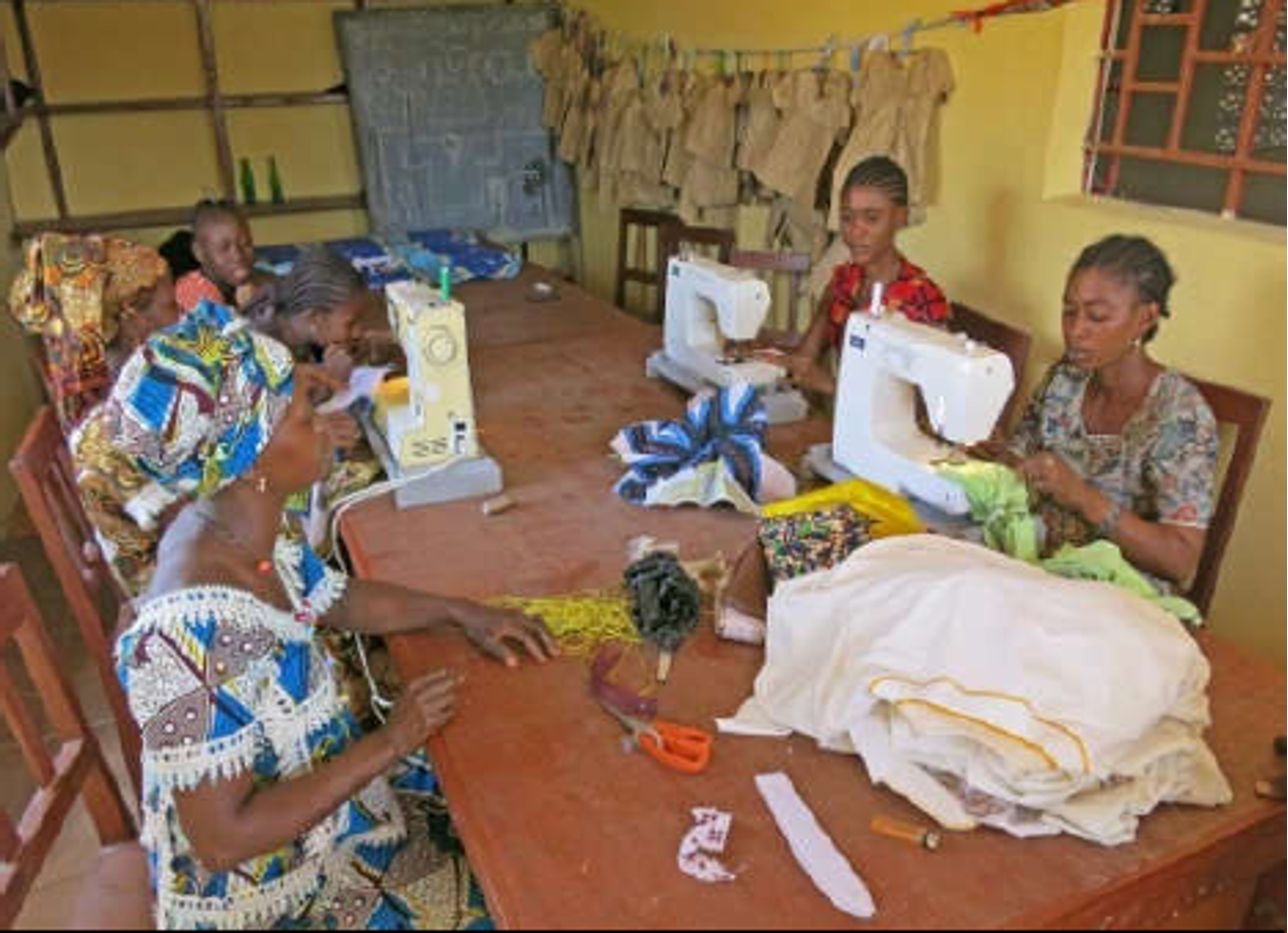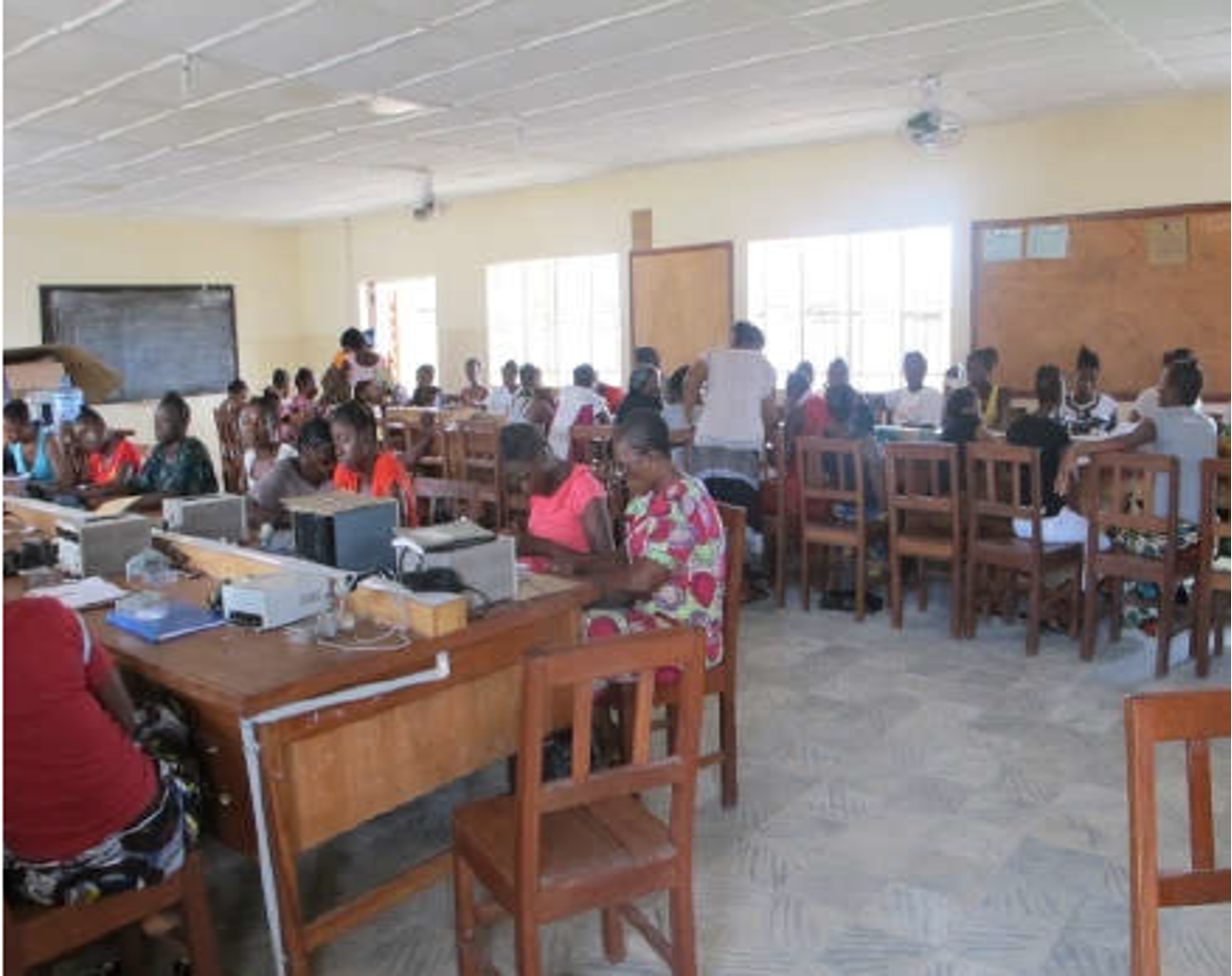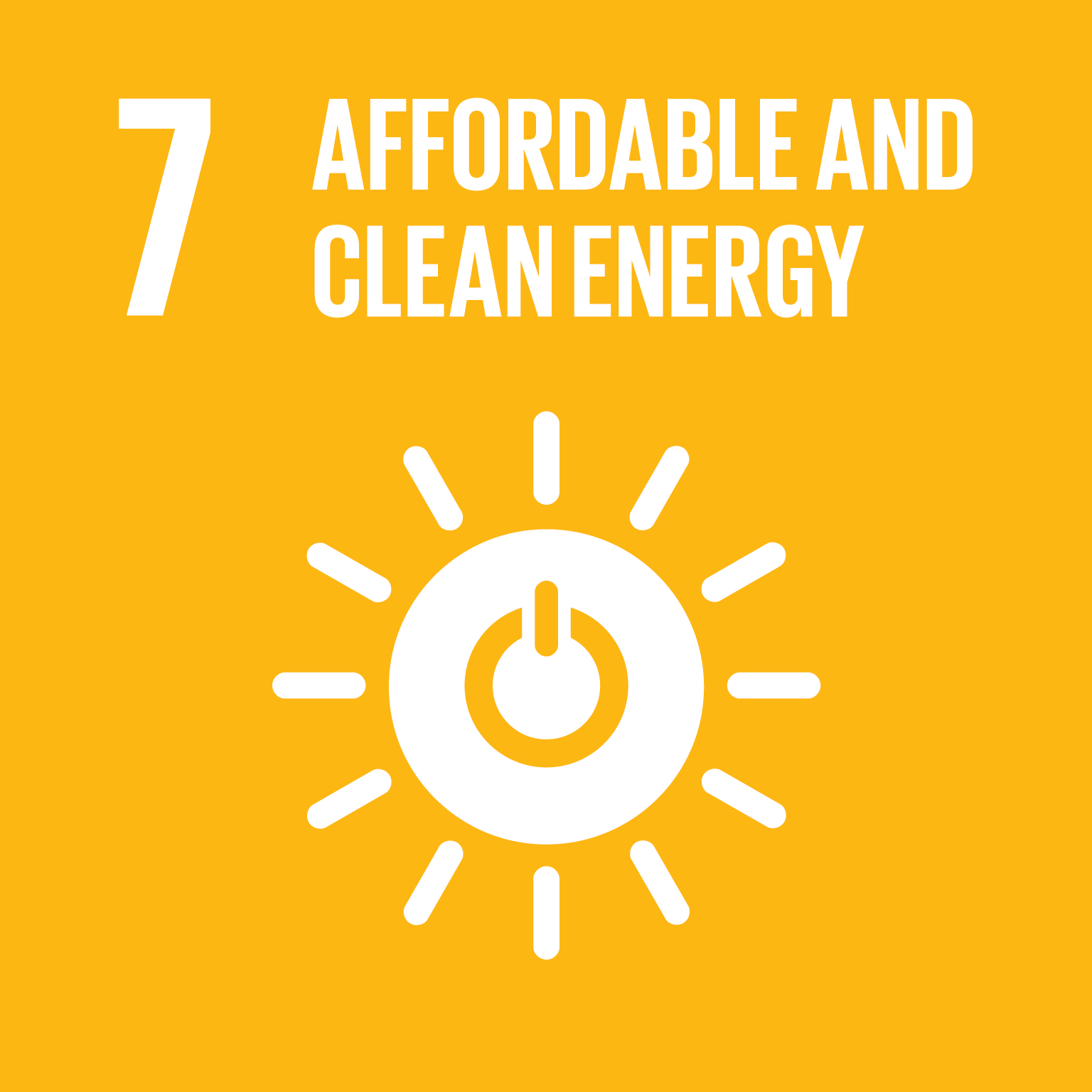 Barefoot College Sierra Leone
An exemplary model in affordable energy generation for resource-constrained countries
Barefoot College Sierra Leone
An exemplary model in affordable energy generation for resource-constrained countries

Challenges
Among the poorest countries in the world, Sierra Leone has struggled from a decades long civil war, the Ebola epidemic, the COVID-19 pandemic, natural disasters and global adversities caused by climate change. The country is challenged on every developmental front, and its acute energy shortage is a serious difficulty. Lack of access to reliable and affordable energy impedes the country from developmental progress (including promotion of industries, employment creation, facilitation of education and health services, etc.) and the high cost of fuel imports drains the economy.
Though the government and development partners have attempted to adopt aggressive planning measures to address energy issues, the country continues to encounter many obstacles in the technical, economic, social, environmental and political spheres. Within these existing constraints, a cost effective, manageable and local resource-based energy solution is urgently needed. and UNIDO intervened in 2012 to address the challenge by strengthening Barefoot College with an innovative business model.
Towards a Solution
In response to the urgent need for energy access and mass employment in Sierra Leone, in 2012 the United Nations Industrial Development Organization (UNIDO), under the Ministry of Energy of the Government of Sierra Leone, began supporting the Barefoot Women Solar Energy Association, now better known as the Barefoot College. This falls under UNIDO’s role as a key implementing partner for the government’s flagship programme of rural electrification through solar energy. While the Barefoot concept originated in 1972 in India, and over 50 such projects were initiated around the world, the Barefoot College under the Ministry of Energy in Sierra Leone has been exemplary and recognized globally.
The model consists of three elements: (i) utilizing South-South and triangular cooperation principles that emphasize local resources and capabilities; (ii) engaging multiple projects and partners; and (iii) collaboration that assures successful and incremental business reforms, performing purposeful demonstrations for smooth transitions and attaining visible and sustainable transformation results.
Prior to the Barefoot College being formally registered in 2010 in Sierra Leona, some of the organization’s women members were trained on solar PV assembly by Barefoot India (2008 to 2010) and even earlier, from 2002-2005, the Sunshine Fellowship in Austria trained the women on entrepreneurship. The project initially struggled to operate due to limited funding. UNIDO joined the project in 2012 with an innovative business model that first generated funds to kick-start activities and generate working capital. UNIDO involvement helped broaden its networks and add capacity building and entrepreneurial activities, including marketing and promotional activities. UNIDO provided ICT and audio-visual equipment (computers, laptops, printers, television sets, DVD players, internet modems and extra view DSTV receivers) and supplied fans and deep freezers for retailing of beverages and water at the Barefoot College as a means of generating extra income.
Over a decade, the Barefoot College has been creating opportunities for rural people, primarily illiterate women, while establishing sustainable businesses and bringing electricity to the countryside, including to hospitals, health centres and schools across Sierra Leone. Today, in addition to solar PV system training, the college trains students in ICT, greenhouse technologies, soapmaking, tailoring, woodworking, upholstering, welding and steel work. Further entrepreneurship activities, like a bakery, computer and printing services, repair services and community farming, have enhanced the school’s ability to generate resources.
Employing South-South cooperation methods, the project enlisted India and China to provide knowledge and expertise on solar PV technologies to the Barefoot College. These countries helped strengthen business expansion, together with other supporting partners. Over the years, the Barefoot College has received researchers from Ghana and India and has hosted exchange visits from Ghana, Guinea, Mali and South Africa. The College’s expertise has been shared with other African countries through conferences. Neighbouring Liberia has benefited from group training and neighbouring Guinea assisted with project execution.
The Barefoot College has contributed significantly to improved energy policies in Sierra Leone, with strategies being adopted that include electrifying rural health centres and schools with solar power, increasing the renewable energy portion of the total country energy mix and removing taxes on solar PV imports.
The Barefoot College in Sierra Leone is a South-South and Triangular cooperation model that has been field-tested, is cost-effective and strongly supports the 2030 Agenda. This ongoing initiative contributes to the sustainable development agenda 2030 through several SDGs, in particular addressing: SDG 7.1 (ensure universal access to affordable, reliable and modern energy services) by promoting solar photovoltaic (PV) systems for energy generation; SDG 1 (No Poverty) through the creation of thousands of job opportunities, increasing rural incomes and improving livelihoods; SDG 3 (Good Health and Well-being) by elec- trifying hundreds of rural health and maternity centres; SDG 4 (Quality Education), by providing solar power to hundreds of schools; SDG 5 (Gender Equality) by promoting women’s social and economic empowerment and livelihoods through training, workshops and entrepreneurship; and SDG 9 (Industry, Innovation and Infrastructure) by creating a support structure for micro enterprises and services throughout the country and creating thousands of employment opportunities.
Based on the model of multiple projects and multiple partnering, Barefoot College Sierra Leone has grown much bigger than its initial phase, adding to the sustainability of the initiative. Like-minded partners, in addition to UNIDO, Barefoot India and Sunshine Fellowship Austria, have included the United Nations Development Programme (UNDP), the Food and Agriculture Organization of the United Nations (FAO), the United Nations Office for Project Services (UNOPS), the World Bank, the European Union and others, and have allowed the initiate to garner alternative sources of income and support. The multiple project, multiple partner strategy makes the initiative highly resilient to challenges, such as paucity of resources, political interference, disasters and the latest being the COVID-19 pandemic.
Developing countries that wish to accelerate clean and renewable energy access and catch up technologically, narrowing global energy divides, have learned from Sierra Leone’s experience and can continue to exchange and grow from this ongoing project.
Contact Information
Countries involved
Supported by
Implementing Entities
Project Status
Project Period
Primary SDG
Primary SDG Targets
Secondary SDGs
Secondary SDG Targets
Similar Solutions
| NAME OF SOLUTION | Countries | SDG | Project Status | |
|---|---|---|---|---|
Accelerating the Transformational Shift to a Low-Carbon Economy in Mauritius Towards supplying 35 percent of the country’s energy needs with renewables by 2025 |
Austria, China, Ghana, India, Liberia, Mali, Sierra Leone, South Africa | 05 - Gender Equality 09 - Industry, Innovation and Infrastructure 13 - Climate Action | Ongoing | View Details |
Accelerator Labs Network Following collective intelligence methods to address emerging sustainability challenges and the growing demand for local solutions |
Austria, China, Ghana, India, Liberia, Mali, Sierra Leone, South Africa | 08 - Decent Work and Economic Growth 13 - Climate Action | Ongoing | View Details |
Accessibility of Financial Services and the Private Sector in Africa Maximizing the impact of financial cooperation on economic development and industrialization in Africa |
Austria, China, Ghana, India, Liberia, Mali, Sierra Leone, South Africa | 08 - Decent Work and Economic Growth | Completed | View Details |
ADAPT PLAN in Malawi |
Austria, China, Ghana, India, Liberia, Mali, Sierra Leone, South Africa | 01 - No Poverty 05 - Gender Equality 11 - Sustainable Cities and Communities | Ongoing | View Details |
Addressing Racial and Ethnicity-based Discrimination and Strengthening the Protection of Rural Afro-descendants UNFPA supports data disaggregation as a tool to fight racism and ethnic discrimination |
Austria, China, Ghana, India, Liberia, Mali, Sierra Leone, South Africa | 01 - No Poverty 02 - Zero Hunger 03 - Good Health and Well-being 05 - Gender Equality 06 - Clean Water and Sanitation 11 - Sustainable Cities and Communities 16 - Peace and Justice Strong Institutions | Ongoing | View Details |
